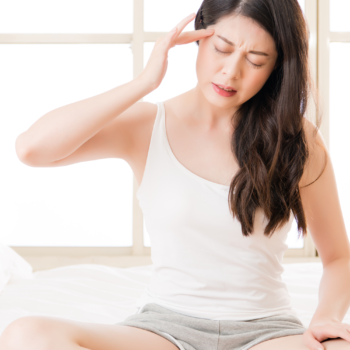IF SO, IT COULD BE A HORMONAL IMBALANCE! Read on to see what the 7 tell-tale signs of a hormonal imbalance are
There are many different factors that can affect a person’s hormones, and it’s not always clear which element is at play when you’re experiencing symptoms. But first, before going over what some of these factors are, let’s start by getting a basic understanding of what hormones are.
What is a Hormone Imbalance?
Each part of your body: your brain, skin, heart, kidneys, muscles, etc. have a specific job to do. And to get the work done, they take direction from your endocrine system.
The glands of the endocrine system send out hormones that tell each part of your body what work to do, when to do it, and for how long.
They are your body’s chemical messengers. They travel in your bloodstream to tissues or organs to help them do the work that needs to be done. They play a vital role in:
- Growth and development
- Metabolism: how your body gets energy from the foods you eat
- Sexual function
- Reproduction
- Mood
Sometimes your hormones can get out of balance and this can lead to problems like diabetes, weight gain or loss, infertility, weak bones, and other problems.
They can also have a negative impact on how you feel physically and emotionally.
We all experience fluctuations in our hormone levels at different stages of our lives. What becomes important is how we manage them!
The Most Common Causes for a Hormonal Imbalance
Age: As we age, levels of most hormones will decrease. Even if they don’t decrease, we may begin to feel symptoms as we get older because the hormone receptors in our endocrine system become less sensitive.
Medications such as birth control pills, steroids, hormone replacement therapy, or cancer treatments, such as chemotherapy and radiation.
Medical Conditions can cause changes in hormonal balance such as Polycystic Ovarian Syndrome (PCOS), hyperthyroidism, and hypothyroidism.
Following are 7 Tell-Tale Signs
Weight Gain/Loss
Have you experienced a sudden weight gain or weight loss with no significant change to your diet or exercise routine? Hypothyroidism can attribute to weight gain and hyperthyroidism with weight loss.
Also our resting metabolic rate slows down as we age due to lower estrogen levels and we start to accumulate more fat especially around our mid section. I have had many clients complain about the increased size of their mid section!
So how do we help our metabolism? By staying active, eating well and supplementing well. Personally I do all three, I try to do something physical most days such as walking, yoga, making sure I get my nutrients and supplementing with a quality product.
Fatigue
Are you finding it difficult to complete normal day to day activities? Do you have unexplained fatigue? If so, you may have an under active thyroid.
Fatigue is associated with several types of hormonal imbalances, including a condition called hypothyroidism, in which the thyroid is under active.
Headaches
Are you getting headaches more often? Are they persistent? Fluctuating levels of estrogen and progesterone can be the blame for this.
Poor sleep
Do you have trouble falling asleep or staying asleep? Do you wake up many times throughout the night? This could be in part due to decreased Melatonin levels and this can happen as we get older.
Mood Swings and Irritability
Are emotions overwhelming you? Do you experience extreme sadness, anger, or happiness? Women tend to be more susceptible to changes in mood when levels of estrogen and progesterone vary.
Skin Issues
Is your skin dry, textured, thinning, or marked with acne? Changes in your skin such as extreme dryness, overactive sebaceous glands, changes in skin color, and the texture of your skin could signal a hormonal imbalance.
When the sebaceous glands are overactive, they cause an excess of oil production. When not cleaned and treated thoroughly, it can result in blocked pores and acne.
Increased Anxiety or Depression
When serotonin, one of the hormones responsible for happiness, is low, you can experience a lack of motivation, feel emotionally down, or have trouble concentrating.
If your symptoms become debilitating or if you have concerns, make sure to consult with your doctor.
Our hormones are vital to our health and wellbeing and therefore it is extremely important that we manage them and this can be done in a variety of ways.
By nutrition, activity or movement, mental wellbeing, and proper supplementation.
Discussions for another day!
However If you feel you may have a hormonal imbalance and would like to have some information on what you can do as it relates to nutrition or on supplementation, please feel free to reach out to me. There are different options that I can provide you with.
My next blog will discuss Foods that help with hormonal balance
Love the life you live,


Anita Duwel
Certified Holistic Nutrition Coach
Certified Master Workplace Wellness Consultant
Facebook Group: Aging with Vitality
Coach Anita Duwel FB Page
I invite you to join my Facebook group Aging with Vitality. It is a place to share information and strategies on living a life of quality and vitality. Be the first to have access to freebies, challenges, etc. Also a place to share some funnies!



Comments